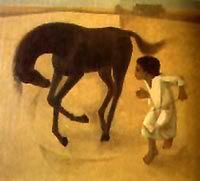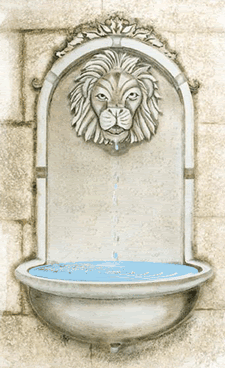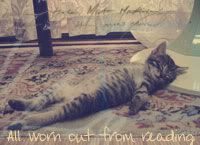The True End of Humility
Screwtape continues his examinations of the virtue of Humility:
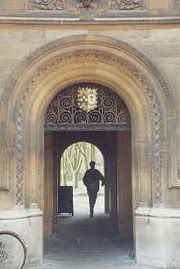 You must therefore conceal from the patient the true end of Humility. Let him think of it not as self-forgetfulness but as a certain kind of opinion (namely, a low opinion) of his own talents and character. Some talents, I gather, he really has. Fix in his mind the idea that humility consists in trying to believe those talents to be less valuable than he believes them to be . No doubt they are in fact less valuable than he believes, but that is not the point. The great thing is to make him value an opinion for some quality other than truth, thus introducing an element of dishonesty and make-believe into the heart of what otherwise threatens to become a virtue. By this method thousands of humans have been brought to think that humility means pretty women trying to believe they are ugly and clever men trying to believe they are fools. And since what they are trying to believe may, in some cases, be manifest nonsense, they cannot succeed in believing it and we have the chance of keeping their minds endlessly revolving on themselves in an effort to achieve the impossible.
You must therefore conceal from the patient the true end of Humility. Let him think of it not as self-forgetfulness but as a certain kind of opinion (namely, a low opinion) of his own talents and character. Some talents, I gather, he really has. Fix in his mind the idea that humility consists in trying to believe those talents to be less valuable than he believes them to be . No doubt they are in fact less valuable than he believes, but that is not the point. The great thing is to make him value an opinion for some quality other than truth, thus introducing an element of dishonesty and make-believe into the heart of what otherwise threatens to become a virtue. By this method thousands of humans have been brought to think that humility means pretty women trying to believe they are ugly and clever men trying to believe they are fools. And since what they are trying to believe may, in some cases, be manifest nonsense, they cannot succeed in believing it and we have the chance of keeping their minds endlessly revolving on themselves in an effort to achieve the impossible. ~C. S. Lewis, The Screwtape Letters (1942)
____________________
On this day:
1920 Lewis takes First in Classical Honour Moderations ('Mods') -- Greek and Latin texts--and begins reading Literae Humaniores.
 The tree which sprang from the Apple that Digory planted in the back garden, lived and grew into a fine tree. Growing in the soil of our world, far out of the sound of Aslan's voice and far from the young air of Narnia, it did not bear apples that would revive a dying woman as Digory's Mother had been revived, though it did bear apples more beautiful than any others in England, and they were extremely good for you, though not fully magical. But inside itself, in the very sap of it, the tree (so to speak) never forgot that other tree in Narnia to which it belonged. Sometimes it would move mysteriously when there was no wind blowing: I think that when this happened there were high winds in Narnia and the English tree quivered because, at that moment, the Narnia tree was rocking and swaying in a strong south-western gale. However, that might be, it was proved later that there was still magic in its wood. For when Digory was quite middle-aged (and he was a famous learned man, a Professor, and a great traveller by that time) and the Ketterleys' old house belonged to him, there was a great storm all over the south of England which blew the tree down. He couldn't bear to have it simply chopped up for firewood, so he had part of the timber made into a wardrobe, which he put in his big house in the country. And though he himself did not discover the magic properties of that wardrobe, someone else did. That was the beginning of all the comings and goings between Narnia and our world, which you can read of in other books.
The tree which sprang from the Apple that Digory planted in the back garden, lived and grew into a fine tree. Growing in the soil of our world, far out of the sound of Aslan's voice and far from the young air of Narnia, it did not bear apples that would revive a dying woman as Digory's Mother had been revived, though it did bear apples more beautiful than any others in England, and they were extremely good for you, though not fully magical. But inside itself, in the very sap of it, the tree (so to speak) never forgot that other tree in Narnia to which it belonged. Sometimes it would move mysteriously when there was no wind blowing: I think that when this happened there were high winds in Narnia and the English tree quivered because, at that moment, the Narnia tree was rocking and swaying in a strong south-western gale. However, that might be, it was proved later that there was still magic in its wood. For when Digory was quite middle-aged (and he was a famous learned man, a Professor, and a great traveller by that time) and the Ketterleys' old house belonged to him, there was a great storm all over the south of England which blew the tree down. He couldn't bear to have it simply chopped up for firewood, so he had part of the timber made into a wardrobe, which he put in his big house in the country. And though he himself did not discover the magic properties of that wardrobe, someone else did. That was the beginning of all the comings and goings between Narnia and our world, which you can read of in other books. Thanks for your most interesting cards. How do you get the
Thanks for your most interesting cards. How do you get the 

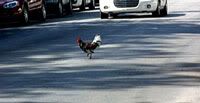
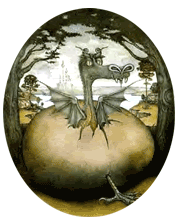




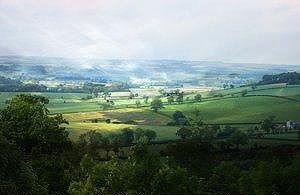



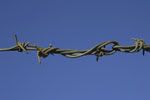

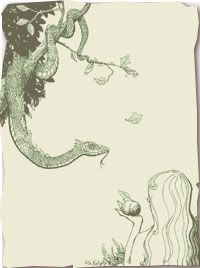
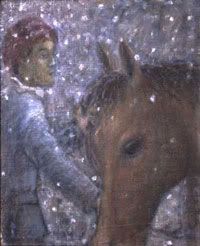 was therefore writing 'for children' only in the sense that I excluded what I thought they would not like or understand; not in the sense of writing what I intended to be below adult attention. I may of course have been deceived, but the principle at least saves one from being patronizing. I never wrote down to anyone; and whether the opinion condemns or acquits my own work, it certainly is my opinion that a book worth reading only in childhood is not worth reading even then. The inhibitions which I hoped my stories would overcome in a child's mind may exist in a grown-up's mind too, and may perhaps be overcome by the same means.
was therefore writing 'for children' only in the sense that I excluded what I thought they would not like or understand; not in the sense of writing what I intended to be below adult attention. I may of course have been deceived, but the principle at least saves one from being patronizing. I never wrote down to anyone; and whether the opinion condemns or acquits my own work, it certainly is my opinion that a book worth reading only in childhood is not worth reading even then. The inhibitions which I hoped my stories would overcome in a child's mind may exist in a grown-up's mind too, and may perhaps be overcome by the same means.

